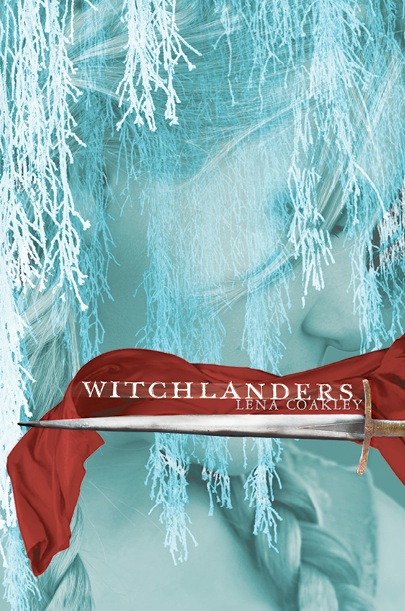Today's blog post is an interview with one of the top 5 finalists in the literary fiction genre of the Kindle Book Review Indie Book Awards! I was very excited to interview this author and I'm sure you'll all enjoy learning about her and her amazing book, After The Fog.
After the Fog is the second novel by bestselling Kindle author Kathleen Shoop. Her debut novel, The Last Letter, garnered multiple awards in 2011 as did After the Fog in 2012. A former Language Arts Coach with a Ph.D. in Reading Education, Kathleen lives in Oakmont, Pennsylvania with her husband and two children.
~Good morning, Kathie! Thank you for doing this interview with me today. I'm sure all my readers are wondering: What
made you choose the self-publishing road over the traditional avenue?
--Hi
Denise, thank you so much for having me and for asking such great
questions. I did start down the traditional publishing road. I had an
agent for a women’s fiction book and she wasn’t able to sell it.
The next two books I submitted to her weren’t the right fit for
her—one was too small and quiet to be my breakout novel (this one
is coming out soon!) and the next one was historical fiction and
something she wasn’t interested in repping. I submitted some of
these books to other agents who found them too literary, didn’t
connect with them or didn’t see a market for them.
The
more I wrote and got better, the more trusted the readers I
identified to help me craft a strong book and the more no’s I got
for strange, particular reasons, the more I felt like getting a
traditional book deal was akin to winning the lottery. I know
many, many people have a different experience than I did and I’m
happy for them, but I felt as though there had to be some perfect
match on particulars that are unknown to all parties
(writer/agent/editor) until they come across it. I knew as a reader
myself and in having many friends and colleagues who are voracious
readers that readers don’t look for the same match that agents and
editors do.
They
want a good book no matter who published it. Take, for example, Sara
Gruen’s, Water for Elephants. What a fantastic novel! According to
the feedback I got from traditional sources, the world must have been
eagerly awaiting a depression era, circus train book for it to have
become so successful. I believe readers are looking to be swept away
by a well-told story, no matter the genre, no matter who published
it, no matter who wrote it. I hope I deliver that for readers. And,
I’m so, so grateful that technology brought along all the avenues
for me to find another path to readers.
I
will always work to become better and I’m not opposed to a hybrid
publishing existence, but I’m satisfied that technology has allowed
for self-published authors to pursue their dream of connecting with
readers, of reaching “unreachable,” markets.
~I
am in the revision process of my first novel. I've noticed how tough
it is to get an agent, and many writers I know have taken the
self-publishing road. What is the best advice you would give to an
author considering self-publishing?
--Congratulations
on being at the revision phase of your novel! That’s a wonderful,
but work-intensive place to be! I think every writer has to weigh
both paths to publication. I am so grateful to have the
self-publishing path as it stands today, but there are times when
credibility issues creeps in for me. I think writers have to fully
understand if they’re ready to self-publish and take the hits for
having put out an “un-vetted” book. Most readers don’t care or
know who published a book, but it can sting to hear fellow writers
put it down. I had to get to the point where the thought of being
read was more important than the thought of having an agent and
editor say it was time for me to be read.
The
best advice has been given by countless others—read a ton, study
other authors, work with other authors, write the best book you can
then move on and write the next one taking the lessons learned with
you. Whether you self-publish or go the traditional route, that
advice works.
Then
find a group of writers to hook up with and form a network. There are
many organizations on-line if you don’t live near other writers.
This type of group is the best for moral support, business
brainstorming, and in helping you become the strongest writer you
can. Some people are shy or uncomfortable with explicit social
networking—these writers still need a network they can depend on
even if they aren’t looking to tweet or facebook with others.
~I have a group of writers who are great for moral support and are invaluable for helping me with my work. I agree, we can't go it alone. Both
of your novels, The Last Letter (which is also on my TBR list) and
After The Fog, are historical fiction. What do you enjoy about writing
in that genre? Also, what is your favorite genre to read?
--I
don’t have one favorite genre to read—I love literary,
historical, thriller, mystery, poetry, and especially nonfiction. I
adore history and for me, having the added layers of another time and
place gives me the opportunity to explore age-old relationships and
issues in what can often be seen as a “new” way. What I mean by
new is simply that history provides places and experiences that have
been forgotten or never known about for wide populations of people.
It’s part of what fascinates me as a reader and so it fascinates me
as a writer.
I
love the research involved in writing historical fiction as well.
Although, I think research plays a part in any book, no matter the
genre or setting. There are so many interesting little facts that
help create a fictional world—that’s also what is compelling to
me as a writer.
~What was your inspiration for writing After The Fog?
--The
true events of “The Five Days of Fog,” otherwise known as Donora,
Pennsylvania’s historic 1948 “killing smog” inspired this book.
Donora was an extremely profitable steel town that supplied the war
effort, the country’s infrastructure efforts and more.
But,
having so much (three mills along a few miles of a bend in the
Monongahela River) industry in a valley that had strange weather
patterns, meant the town was nearly always foggy and often smoggy.
This created health issues, environmental issues and political
issues—but the money for immigrants and wealthier folks was hard to
say no to. Money complicated what seems today as an obvious
answer—shut down the mills when the smoke starts suffocating
people. Most of the timeline reflects the manner in which the real
fog settled in hung around for so long. That fog is the backdrop for
my story. The heart of the story is the Pavlesic family whose
troubles are exasperated (along with the whole town) by the
debilitating industrial smog. Rose Pavlesic is tough—a no-nonsense
public health nurse, wife, and mother who just wants her life in the
proper order! Well, of course that can’t happen in fiction!
~After The Fog is already downloaded onto my Kindle Fire. I can't wait to read it! What
have you found is the most satisfying aspect of being a writer?
--Besides
the contentment I find in crafting stories and shaping fictional
lives, the most satisfying part is being read. Having readers contact
me to say they loved the book is just fantastic. I’m not supposed
to care who likes it, if anyone likes it—it won’t stop me from
writing if no one does—BUT, boy it’s nice to get a note or
facebook post or tweet when someone does like it!
~Thank you again, Kathie for talking to us about your book and your publishing journey. Good luck with your writing and congratulations on being one of the top 5 Finalists in Kindle Book Review's Indie Book Award!
--Thank you, Denise, for having me to
your blog. I appreciate the time you took to have me here and I look
forward to hearing more about your work!
A love story wrapped in historical drama…In the steel town of Donora, Pennsylvania, site of the infamous 1948 “killing smog,” headstrong nurse Rose Pavlesic tends to her family and neighbors. Efficient and precise, she’s created a life that reflects everything she missed growing up as an orphan. She’s even managed to keep her painful secrets hidden from the love of her life, Henry, her dutiful children, and large extended family. When a stagnant weather pattern traps poisonous mill gasses in the valley, neighbors grow sicker and Rose’s nursing obligations thrust her into conflict she never could have fathomed. Consequences from her past collide with her present life, making her once clear decisions as gray as the suffocating smog. As pressure mounts, Rose finds she’s not the only one harboring lies. When the deadly fog finally clears, the loss of trust and faith leaves the Pavlesic family—and the whole town—splintered and shocked. With her new perspective, can Rose finally forgive herself and let her family’s healing begin? Will love be enough?
******
Join Kathleen Shoop and 9 other award-winning authors in the
BEST INDIE BOOK FESTIVAL,
Featuring 10 Literary Fiction and Thriller Titles!
TWO DAYS ONLY!
Tues. Sept. 18-Wed., Sept. 19th.
10 Award winning books and SEVERAL chances to win a
$10, $20, or $50 Amazon gift card
(3 lucky WINNERS will be chosen!)
Click the image below for details


.jpg)














